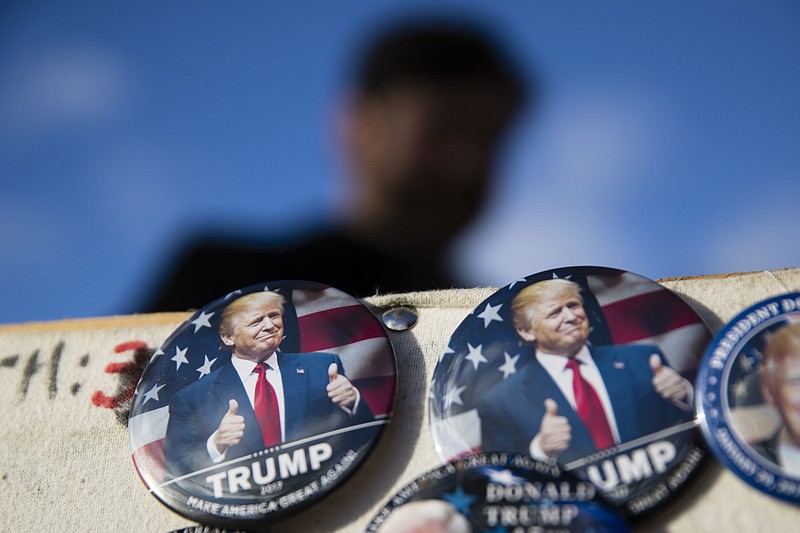With a strident populist tone, President Donald J. Trump vowed in his inaugural address to carry out the message he heard on the campaign trail of "transferring power from Washington, D.C., and giving it back to you, the American people."
"For too long a small group in our nation's capital has reaped the rewards of government," the newly minted 45th president said Friday from a bunting bedecked platform at the U.S. Capitol, "while the people have borne the cost." While the "politicians prospered," the jobs left and the factories closed. "The establishment protected itself," he said, but "their victories have not been your victories."
Trump, echoing many of the themes he used during the presidential race, said the transfer of power "will determine the course of America and the world for years to come."
The New York businessman isn't the first leader to come to Washington, D.C., and vow to upset the apple cart. His predecessor, former President Barack Obama, said similar words, as did many chief executives before him. Many changed a few things, but no one has succeeded in taming the federal government leviathan.
But no previous president has been like Trump, the first man to hold the office with no political or military experience, the richest man ever to ascend to the presidency and the first president in many years who seems willing to speak his mind without fear or favor.
Without couching his address in politically correct terms or with phrases to mollify foreign governments, he said "from this day on a new vision will govern our land. From this moment on, it is only going to be America first, America first."
Trump said every decision on trade, taxes, immigration and foreign affairs will be made to benefit American workers and families.
It was a theme that undoubtedly resonated with what he called "the forgotten men and the forgotten women," who have felt left behind in an increasingly global economy, who have seen illegal immigrants take U.S. jobs and have seen foreign aid doled out but not enough left behind to mend U.S. potholes.
Trump's relatively short (16-plus minutes) speech was long on nationalistic fervor and general promises but short on specific actions to achieve solutions to those problems. But he's got the next four years to figure that out.
Still, he said his administration would bring back jobs, [secure] borders and wealth. He said it would build new highways, roads, bridges, tunnels and railways. He said it would get people off welfare and back to work. He said it would buy American and hire American.
Trump also said "we will unite the civilized world against radical terrorism, which we will eradicate completely from the face of the earth."
It is surely a hefty to-do list he has made for himself, one his political opponents will refer to again and again if the promises are not kept. But to accomplish it he sought help from the very people who believed in him, who voted for him warts and all when no one gave him a chance.
Indeed, several of his phrases sought to recapture the can-do spirit of the Kennedy administration more than half a century ago and the sunny optimism of the Reagan administration more than 35 years ago.
"When America is united," Trump said, "America is totally unstoppable." He said "we must think big and dream even bigger. In America, we understand that a nation is only living as long as it is striving." And he said, "Do not allow anyone to tell you it cannot be done. No challenge can match the heart and fight and spirit of America. We will not fail; our country will thrive and prosper again."
Most Americans still want to believe that type of country can be resurrected. But we are not the same as we were 50 years ago or even 35 years ago. And even as the new president was being inaugurated, protesters were breaking windows and burning cars.
Yet, Trump tried to reach out to those people his political opponents have tried to convince he cares little about. He noted how "black or brown or white bleed the same red blood of patriots," that "a child in the urban sprawl of Detroit or the windswept plains of Nebraska" all "dream the same dreams," and that "all Americans [should hear they] will never be ignored again."
Will they believe him? Will a dose of "winning" - surely the president's favorite phrase - convince them? Or has America become a Humpty Dumpty nation, which can't be put together again?
For us, we'll list to the hopeful side in the belief that there's still life in the ol' nation yet and that a different way of governing from what we've seen in the last eight years can make it happen.
